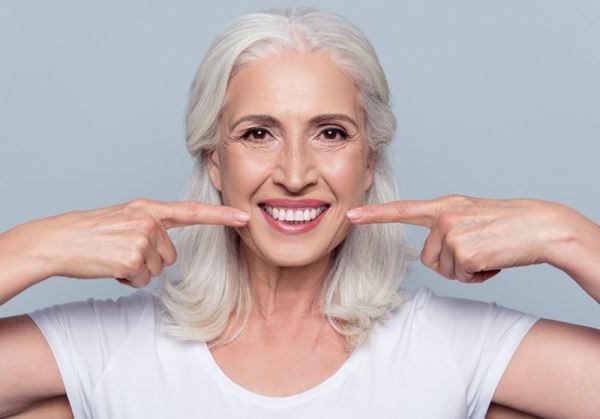Our Blog
1 out of 3 over 65s uses conventional removable prostheses
Tooth loss can occur from different causes. Dental caries, periodontal disease, congenital trauma or absences, etc., are some of the reasons why a patient may present edentulous spaces or without teeth.
To preserve the balance of the mouth in all aspects (articular, muscular, functional and aesthetic), as a general rule, all tooth loss must be rehabilitated. The spaces must always be rehabilitated because the teeth, over time, tend to move covering the gaps. The problem is that these displacements are not favorable because, usually, they cause the teeth to acquire positions that can make hygiene difficult, facilitate the appearance of dental and gingival pathologies, and interfere with occlusion (the bite).
Although a prosthetic element will never be able to compensate 100% for the advantages of a natural tooth, to rehabilitate these spaces there are two large groups of therapeutic alternatives: those options that involve integrating a fixed element in the patient's mouth, which the patient cannot remove; and those that are removable and that the patient can remove from the mouth. In both cases, the treatments can be performed with or without dental implants. Popularly known as "dentures" are those removable prostheses that are not supported by implants.
To obtain the best performance from a conventional prosthesis or denture it is recommended:
- Always keep the prosthesis clean and free of residues. The prosthesis can also accumulate plaque, and even tartar, if it is not cleaned well. There are specific prosthetic brushes and cleaning tablets that help to sanitize them successfully. Home remedies and formulas should be avoided to preserve or adjust them due to the risk of irreversible damage to the materials from which they are made.
- The use of dental adhesives helps to compensate for the shape changes that the mouth suffers over time and the mobility problems that a prosthesis can present, even from the first day of use. Thus, a dental adhesive can help improve the support, stability and retention of the prosthesis, while reducing the leakage of food debris under the prosthesis.
- Visits to the dentist should be kept on a regular basis to evaluate the correct fit of the patient's prosthesis over time. This is highly recommended not only in cases in which the patient still has some teeth in his mouth, but also in those cases in which he has lost all of them.
In summary, conventional dental prostheses are still a viable option that covers the need to rehabilitate missing teeth. Its use and maintenance will benefit from the use of certain tools and products and, above all, thanks to regular supervision by the dentist.

